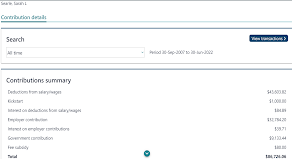What does equity actually mean? Why is it important? How do we increase equity in our home? How can we use equity to help?
How do we increase equity in our home? What does it even mean and why should we? Is there any advantage in having more equity? Let's have a look at the effect it has on how we can get ahead.
The houses above are houses we have owned. Believe it or not, they are two pictures of the exact same home. This house is a great example of how to increase equity.
When you buy your first home, look for homes that are less than perfect.
The amount of equity in your house is calculated using a very simple equation:
VALUE OF YOUR HOME minus AMOUNT OF DEBT AGAINST YOUR HOME
Normally when you purchase your first home, you are looking at between 5 and 20% deposit, that means you have between 5 and 20% equity.
VALUE OF YOUR HOME ($500,000) minus the AMOUNT OF DEBT AGAINST YOUR HOME ($400,000). This means if you have 20% equity or $100,000 equity. It is important to understand that once you get to where you have 20% equity you need to keep at least 20% equity in your home.
So if you were to sell your home over the next few weeks you would (in theory) come out with $100,000.
If we use the above houses as two examples of this, we can see how equity can be adjusted, depending on the amount of the home you purchase and what you do to improve it.
Example 1: Let's imagine we have a $100,000 deposit for a house. We could probably purchase the yellow house above for around $200,000 and have 50% equity, or $100,000
- Repayments will be (at today's rates) $290 per fortnight for 30 years
- This house would require around $100,000 spent on it to make it nicer in order to increase it's value. If this extra $100,000 was borrowed on purchase of the house, repayments would increase to $581/fortnight
- In a year's time the house value would increase to around $550,000 and because the amount owing is now $200,000, the equity in the house would be $350,000
- There is more equity available that can be used to purchase an investment property.
- With $350,000 equity, working towards the purchase of a new home to rent it would look a little like this:
- $350,000 equity, means you can use the difference between this equity figure and the 20% equity that needs to be retained against your home, to make up the deposit. In other words $350,000 - $110,000 means it frees up $240,000 for a deposit on another property.
- If you purchase a $400,000 property with $240,000 deposit.
- The repayment on the $400,000 would be $1.162 per fortnight
- Looking at today's rates, you could charge around $550/week rent on a 3 bedroom home. Therefore, you almost get the second home for no cost (just rates, maintenance and insurance)
- This is looking at purchasing a rental property within a year and getting all the work done on the house within a year.
Example 2: If we purchased the green house above for $500,0000. We could spend our $100,000 deposit and have 20% equity, still $100,000.
- Repayment will be (at today's rates) $1,162 per fortnight for 30 years
- There is no work required on the house, it is in a good state so no money needing to be spent on it.
- The house value will not necessarily increase due to improvements so the equity will remain at 20% or $100,000
- Because there is only 20% equity there is little or no room for some equity to be used as a deposit for another home
- However, if the value of the home goes up due to housing price increases it may go up to $550,000 in the first year, that would give you an extra $50,000 equity, so now you have $150,000 equity.
- $150,000 equity, means you can use the difference between this equity figure and the 20% needed as equity in your existing home. In other words $150,000 - $110,000 so you have $40,000 that you can put towards purchasing another home.
- A $400,000 home with $40,000 deposit will only be 20% of the price of the home which needs to have a deposit of 40% (the requirement for an investment property deposit)
- This is not an option yet in this scenario.
As you can see from the above examples (and we haven't looked at any options of mortgage reduction in this scenario), you don't have to wait until you have paid off your home before you purchase another property. The secret is to increase your equity as quickly and painlessly as possible. Sometimes the value of your property can be increased easily by tidying up grounds and putting on a lick of paint here and there. It doesn't have to be incredibly expensive.
Have a go at understanding this, crunch some numbers. It has worked really well for me, once you have your first home start to look at increasing the equity as quickly as possible. It is an incredible feeling to be able to purchase other property using what you have achieved.
I hope this makes things a bit easier to understand. Enjoy, and feel free to question, comment follow and share. All questions are gratefully received and it gives me great ideas for future blogs. Thanks so much for supporting me it means a lot. I hope I can help you. Have a glorious weekend everyone!





Fantastic. Have a great weekend.
ReplyDeleteYou too, stay safe and dry!
DeleteIf I get my house valuation then minus my debt. This is my equity. Ok awesome
DeleteThat is perfectly correct, so reducing your debt and increasing the value of the property really helps to increase the equity.
Delete